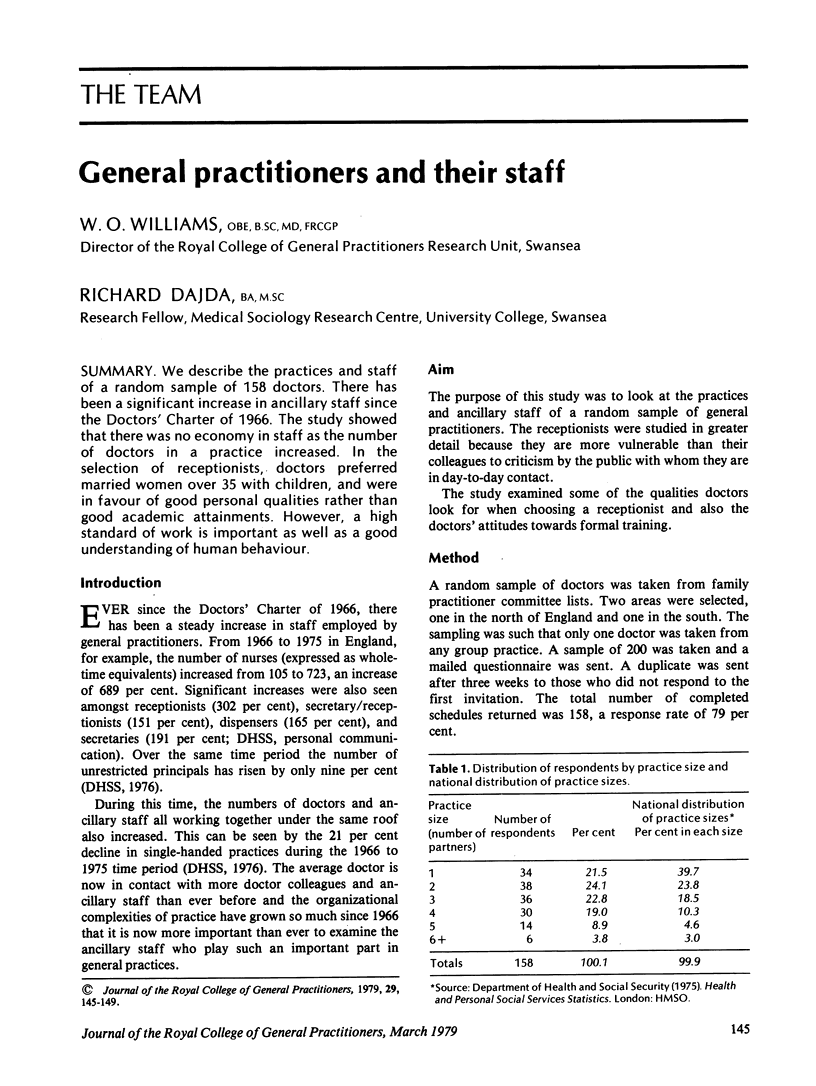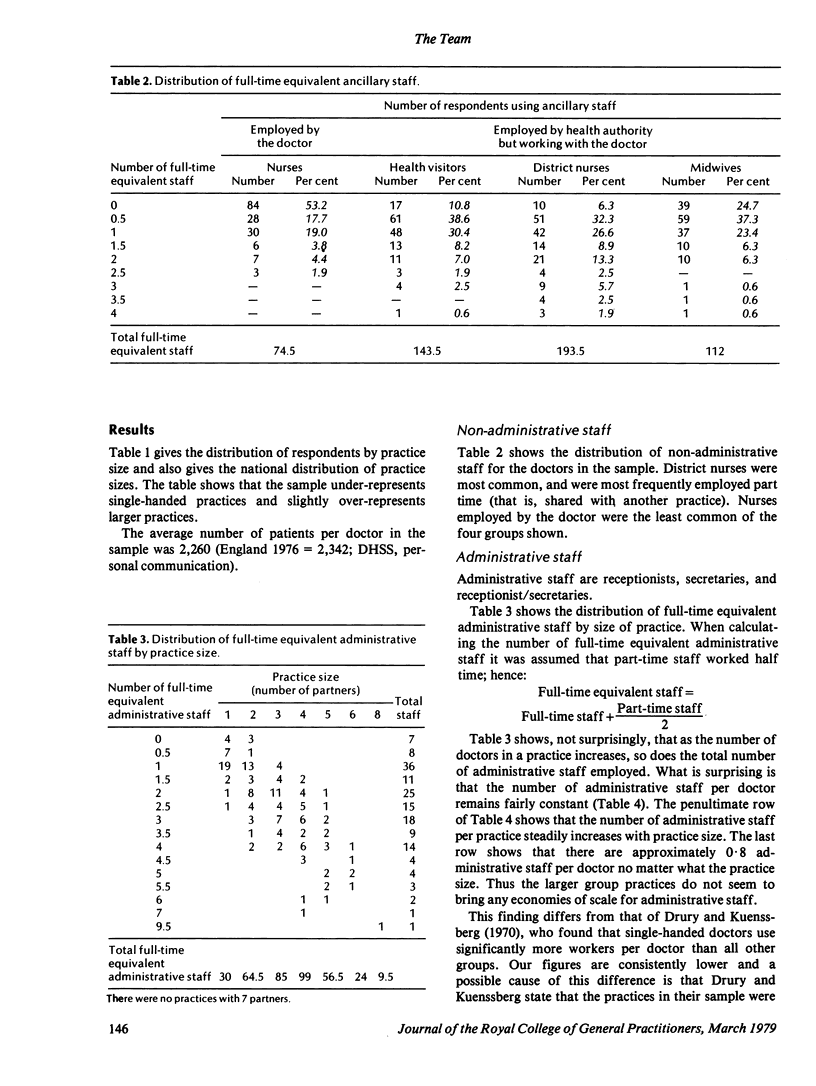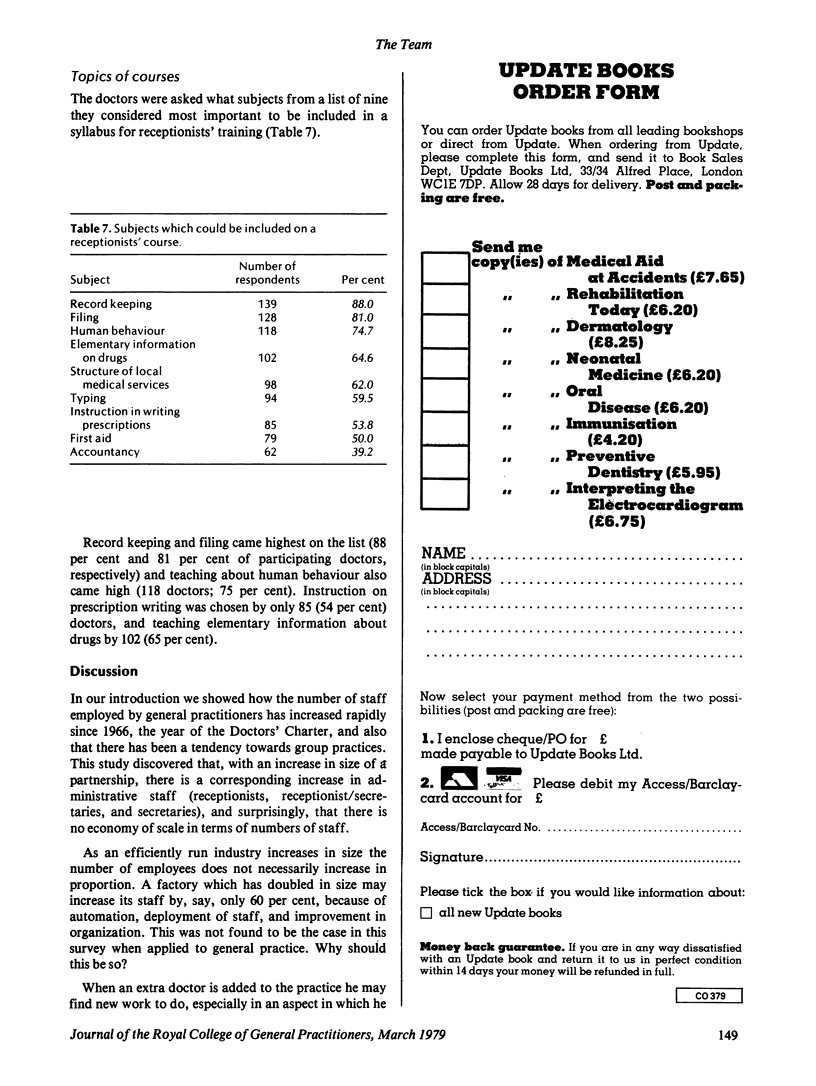Abstract
We describe the practices and staff of a random sample of 158 doctors. There has been a significant increase in ancillary staff since the Doctors' Charter of 1966. The study showed that there was no economy in staff as the number of doctors in a practice increased. In the selection of receptionists, doctors preferred married women over 35 with children, and were in favour of good personal qualities rather than good academic attainments. However, a high standard of work is important as well as a good understanding of human behaviour.
Full text
PDF




Selected References
These references are in PubMed. This may not be the complete list of references from this article.
- Drury M., Kuenssberg E. V. Inquiry into administrative activities in general practice. Br Med J. 1970 Oct 3;4(5726):42–44. doi: 10.1136/bmj.4.5726.42. [DOI] [PMC free article] [PubMed] [Google Scholar]
- Madeley J. Repeat prescribing via the receptionist in a group practice. J R Coll Gen Pract. 1974 Jun;24(143):425–431. [PMC free article] [PubMed] [Google Scholar]
- Manasse A. P. Repeat prescriptions in general practice. J R Coll Gen Pract. 1974 Mar;24(140):203–207. [PMC free article] [PubMed] [Google Scholar]
- Mulroy R. Ancillary staff in general practice. J R Coll Gen Pract. 1974 May;24(142):358–361. [PMC free article] [PubMed] [Google Scholar]


